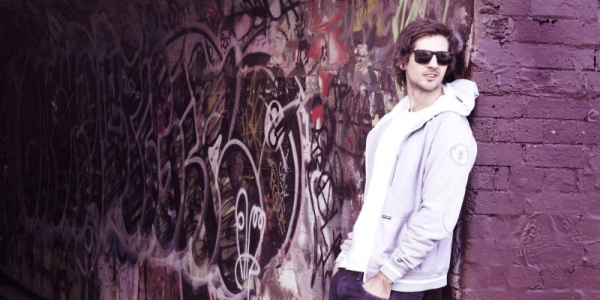As a DJ and not a producer, Mowlavi’s beginnings as a label owner are a little unconventional – proving a challenge to establish the label during its humble beginnings. “Yeah, it was at first, it was pretty hard,” he concedes. “All the labels that were around already were already established or ran by artists themselves, so if you’re an artist, why would you give music to someone you’ve never heard of? It was a long process, spending time with the artists and explaining what I was trying to do with the label and establishing trust. Showing them that sometimes, it’s better if you’re not a producer, so you can concentrate more on running a label. A long process, but rewarding.”
Critical has since blossomed into one of the genre’s most forward-thinking and successful outlets – playing host to releases from the likes of Marcus Intalex, Calibre, Breakage, Spectrasoul, Enei and plenty more. These days however, Mowlavi’s approach to the label is a little more anarchistic, with the launch of Modulations alongside the label expanding beyond the initial focus on 170BPM beats to techno, dubstep and beyond. “It’s quite hard to launch something alongside your label – everyone thinks it’s a sub-label, and the term is something I hate,” he says. “Sub suggests that it’s not good enough to go on the main label. What I try to explain to people is that Modulations is a series that’s just packaged differently – it’s still great music. It’s like if we’d done a compilation album and called it Critical Presents: Modulations. It’s the same thing, but across a series of records that may never end. We’ve had new artists as well as established artists – it’s a way of presenting music in a new and more interesting way, breath[ing] a little life into the genre. The reception has been really good, so I’m pleased about that.”
The label’s broadened horizons, as he explains, is the reflection of a scene that is beginning to diversify and fragment, more willing to explore new territory and take risks. “I think more and more these days, the idea of tempo is becoming increasingly irrelevant – you can play more and more in a DJ set now. One of the popular aspects of dubstep, for example, has been that you can go and watch a DJ play techno and house, dubstep, drum and bass – that’s interesting and fun, and that’s rubbed off on everyone, more people are just making what they feel like making. It’s a label – you release what you think is good music. Real labels don’t care about the commercial aspect of things – obviously you need to survive as an entity, but if it’s good, I don’t care what it is, I’m going to put it out.”
Even his own forays into production have been coloured by this. Only in the past few years has Mowlavi moved from exclusively being a DJ into the world of music production, but it’s one that’s presented him with exhilarating challenges. “It’s harder in a way, given my background, yeah,” he says of the move. “The bar’s been set by the artists on the label already and I’ve got this mental hurdle I can’t get over where I write quite a lot of music, but I don’t think it’s good enough, and I’m worried that people will think I’m putting it out because I can. A lot of artists are never really happy with what they do, but I’m getting there – I only put something out if I’m really into it. I’ll be honest, I’m writing a lot more house and techno than I am drum and bass. I enjoy making music, but I don’t put pressure on myself to write anything in particular, I just get in the studio and make noise and see what happens.”
Given Critical Music’s rapidly-upcoming tenth birthday, it seems more than fitting that the crew behind it are ready and raring to throw some serious parties to celebrate, and the upcoming Australian tour alongside labelmate Sabre is one of a few planned. Representing the extensive legacy of Critical is a challenge not to be sniffed at, one would assume – pressed for some of the achievements he’s most proud of during that time, Mowlavi has a lot to pick from, but he is surprisingly laidback and humble about it. “I’d say mainly a lot of the things we’ve done with Fabric – doing the residency there, the Fabric CD as well, that was really great, a real honour to do that. The music that’s out as well – the cross section of what I think is really good drum and bass, from Spectrasoul to Enei and breaks. I’m really proud of the catalogue – all of it, really.”
BY MIKI MCLAY

